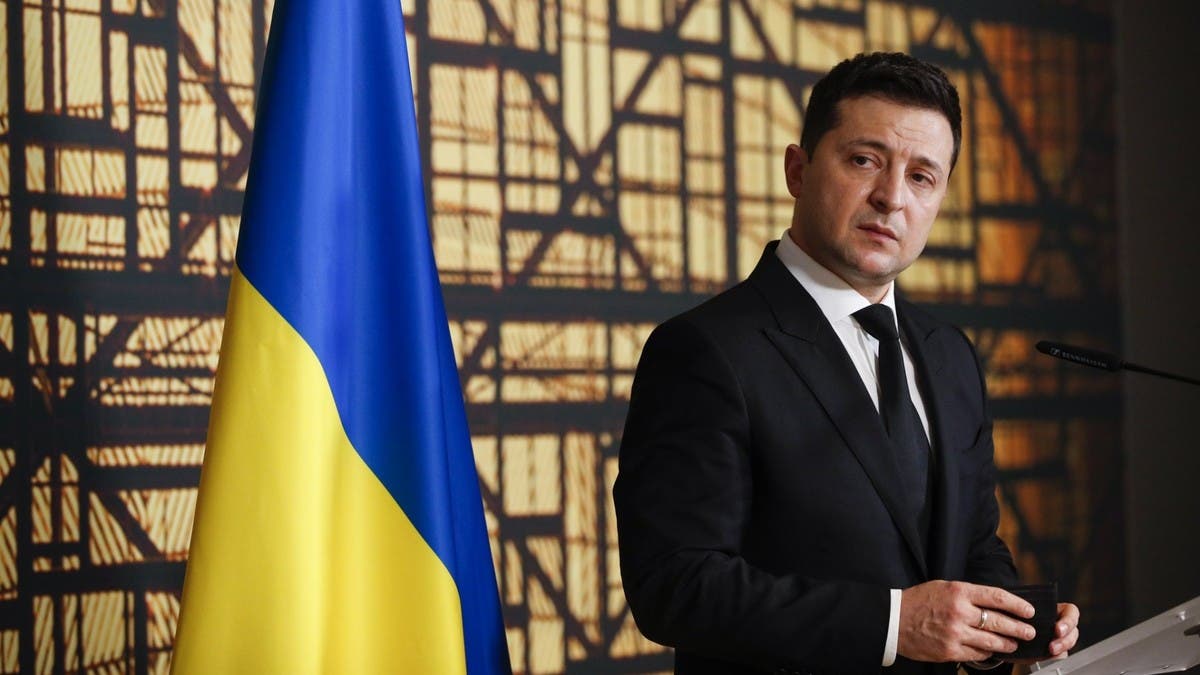Ukrainian President Volodymyr Zelenskyy urged European Union leaders on Wednesday to swiftly impose new sanctions on Russia before it invades his country, and warned that acting after any conflict would be far too late.
Speaking to reporters in Brussels, Zelenskyy said Ukraine stands ready to enter into talks with Russia to ease tensions, but that Russian President Vladimir Putin does not so far appear willing to come to the table.
The EU’s 27 national leaders will weigh how best to prevent a Russian invasion at a summit on Thursday. A statement drafted for their meeting, seen by The Associated Press, warns that “any further military aggression against Ukraine will have massive consequences and severe cost in response.”
For the latest headlines, follow our Google News channel online or via the app.
“For us, it is important to have sanctions applied before, rather than after, the conflict would happen, because if they were applied after the conflict would happen, this would basically make them meaningless,” Zelenskyy said.
“We have war going on for eight years. We understand that only if the sanctions are applied prior to the armed conflict would they become a prevention mechanism for any possible escalation,” he said.
US intelligence officials say Russia has moved 70,000 troops toward Ukraine’s border and is preparing for a possible invasion early next year. Moscow denies that it has any plans to attack Ukraine, but did so in 2014 when it annexed the Crimean Peninsula.
Zelenskyy said he and some EU leaders discussed five options for responding to any Russian attack, but he provided no details. European officials argue that it's a better deterrent to keep Putin in the dark about what measures might be used against him.
Earlier, European Commission President Ursula von der Leyen said the EU has a battery of fresh sanctions ready if Moscow sends its troops across the border. Beyond scaling up existing sanctions, she said, the EU can adopt “unprecedented measures with serious consequences for Russia.″
The US and the EU have been coordinating their response to the Russian, but no real details of any sanctions have emerged. EU nations are divided between those in the east that think sanctions should be imposed immediately, and others like France and Germany who fear that could provoke an invasion.
French President Emmanuel Macron and German Chancellor Olaf Scholz held a special meeting with Zelenskyy focused, at least in part, on how to revive the “Normandy format” involving their two countries plus Russia and Ukraine for talks aimed at ending the conflict.
So far, Moscow has refused pleas to return to the negotiating table.
Zelenskyy said Ukraine is open to negotiations of any kind, but that “what we are lacking is a willingness on the other side, on the Russian side, to engage in any kind of format or negotiations with us.”
France and Germany brokered a peace agreement in 2015 that helped end large-scale hostilities in eastern Ukraine, where Ukrainian forces have been fighting Russia-backed separatists since 2014. Still the conflict that has left 14,000 dead has simmered.
Scholz warned that more talks “must not be misunderstood as a new German ‘Ostpolitik,’” referring to West German Chancellor Willy Brandt’s policy of détente toward the communist Eastern bloc in the early 1970s.
There “can only be a European ‘Ostpolitik’ in a united Europe” that is based on principles of international law and order that Russia committed itself to but violated with the annexation of Crimea, he said.
Compounding the testy relations with Moscow, Germany decided Wednesday to expel two Russian diplomats after a court concluded that Moscow was behind the killing of a Chechen man in Berlin two years ago.
Read more:
Explainer: Why is Russia’s Putin so focused on neighboring Ukraine?
Biden warns Putin: Russia will pay ‘terrible price’ if it invades Ukraine
G7 ministers present united front against Russia over Ukraine crisis

 World3 years ago
World3 years ago
 World3 years ago
World3 years ago
 Business1 year ago
Business1 year ago
 Entertainment7 years ago
Entertainment7 years ago
 World7 years ago
World7 years ago
 Entertainment7 years ago
Entertainment7 years ago






